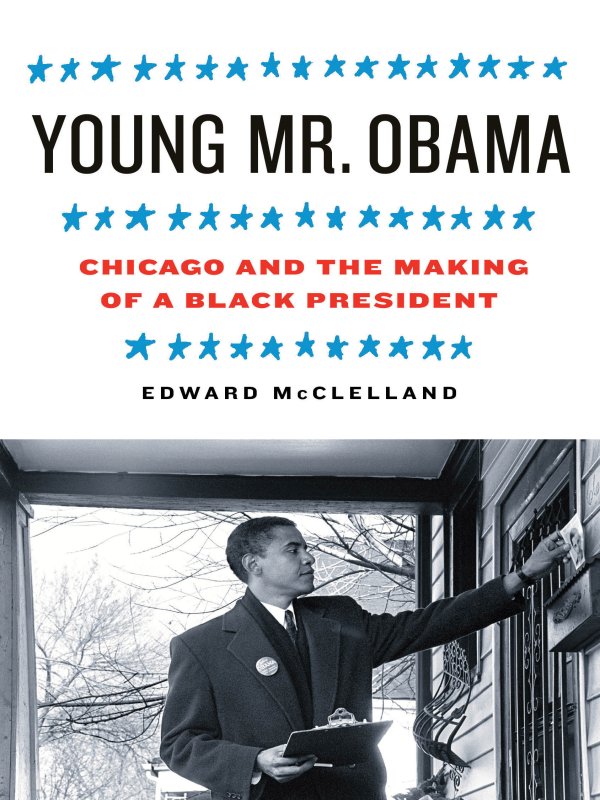
Young Mr. Obama
Chicago and the Making of a Black President
کتاب های مرتبط
- اطلاعات
- نقد و بررسی
- دیدگاه کاربران
نقد و بررسی

August 2, 2010
As Barack Obama’s presidency is beset by falling ratings, a weak economy, and an antideficit mood, McClelland’s examination of Obama’s ascendency should encourage supporters and instill caution in opponents. This detailed history traces Obama’s arrival as a community organizer “self-conscious about his exoticness” and his rise to the top of Chicago politics in his 2004 primary campaign for the Senate. While the insider baseball of Chicago politics can prove dauntingly detailed, the account illustrates critical moments in Obama’s whirlwind ascent to high office. His 1999 loss to congressman and former Black Panther Bobby Rush left Obama “dejected, demoralized and bitter” about attacks on his credibility as a black politician, but McClelland (The Third Coast) is refreshingly unsparing on Obama’s missteps: ”Obama didn’t lose because he was ‘too white.’ He lost because he was a presumptuous young man challenging a popular incumbent.” Political junkies will pay close attention to the story of Obama’s tough political learning curve even as it recounts how the president’s early ambitions bore out his initial belief “that his adopted home was the perfect training ground for solving America’s problems, racial and otherwise.”

June 15, 2010
Journalist McClelland (The Third Coast: Sailors, Strippers, Fishermen, Folksingers, Long-Haired Ojibway Painters, and God-Save-the-Queen Monarchists of the Great Lakes, 2008, etc.) looks at the effect of President Obama's years in Chicago.
Obama first came to Chicago in 1985 as a recent Columbia University graduate to work as a community organizer in the housing projects on Chicago's South Side. After a three-year absence to attend Harvard Law School, he went on to spend his entire political career in Chicago--first as an Illinois state senator, then as Illinois's junior U.S. Senator--before becoming president. McClelland, a former staff writer for the Chicago Reader, reported on Obama during his time in the city, and he provides a vivid portrait of Chicago and its politics--from the poor Altgeld Gardens housing projects, where Obama directed the Developing Communities Project as an organizer, to the nearby affluent academic neighborhood of Hyde Park, where he taught as a law professor at the University of Chicago. The city's rough-and-tumble political atmosphere toughened Obama as a legislator and honed his skill at making important political alliances. He also got an education in bare-knuckle political tactics, knocking rivals out of his initial state senate race by aggressively challenging voter petitions. Through legislation, he worked to remedy the city's infamous political corruption. His failed run for a seat in the U.S. Congress in 2000 made him rethink his staid and professorial public demeanor, transforming him into a stunningly charismatic speechmaker. Significantly, he was also forced to confront the complex politics of race in a city with the largest population of African-Americans in the United States--some of whom questioned the authenticity of the mixed-race Obama's "blackness." While McClelland perhaps overstates the importance of Chicago on the national political stage--"[O]nly in Chicago could a black man become president of the United States"--he makes a convincing case that President Obama's experiences in his adopted city shaped him profoundly and helped make him the seasoned and formidable politician he is today.
An engaging overview of the president's early political education.
(COPYRIGHT (2010) KIRKUS REVIEWS/NIELSEN BUSINESS MEDIA, INC. ALL RIGHTS RESERVED.)

























دیدگاه کاربران